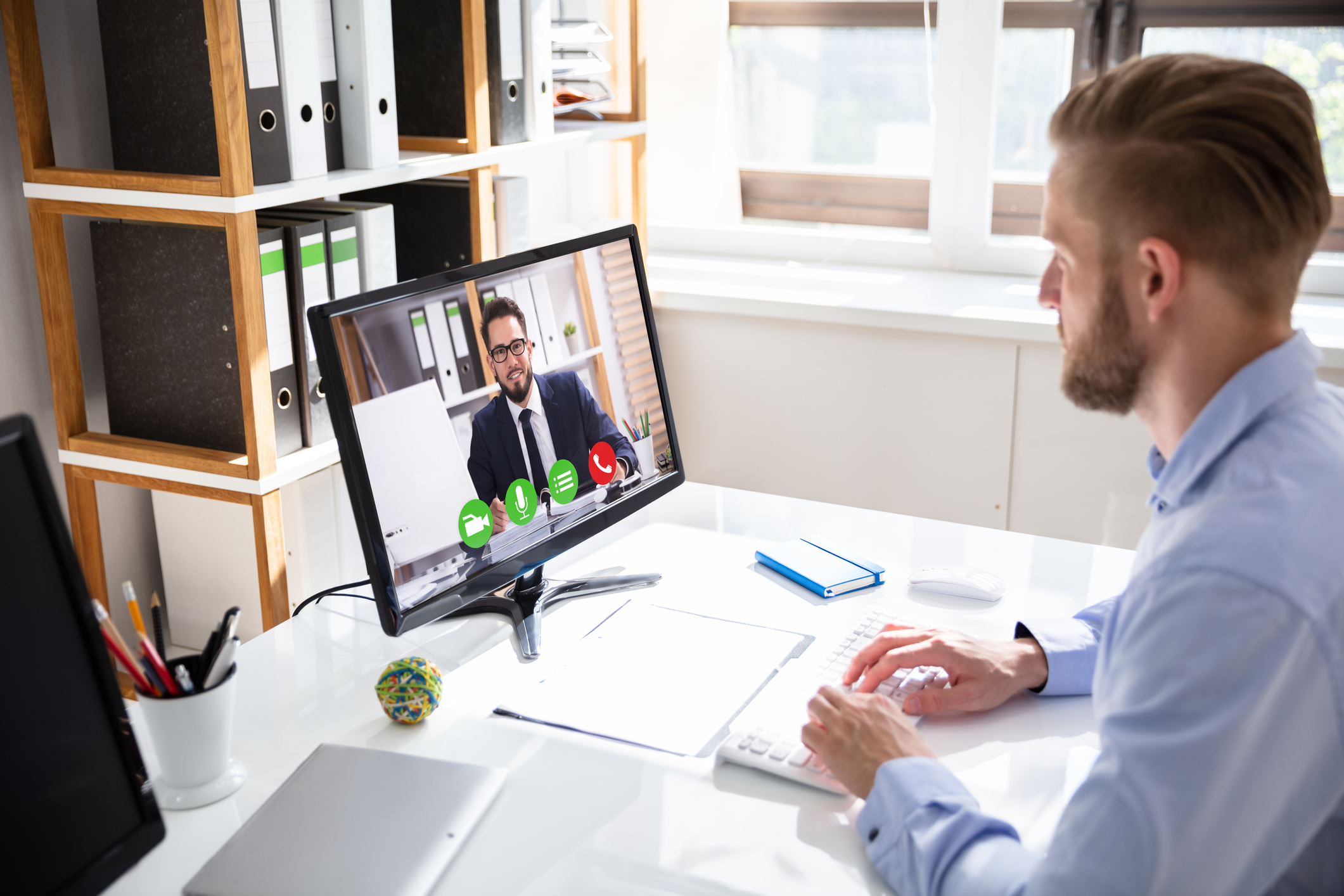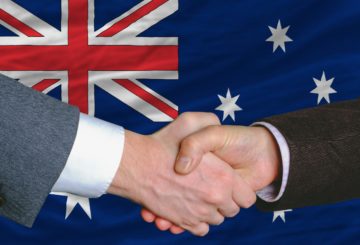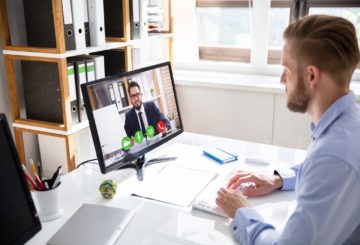
In Australia, interviews are still a key part of the recruitment process for all jobs. Increasingly, interviews can be done in a variety of formats in the early stages. These formats include an informal coffee meeting, a phone or video interview, or a video or audio recording from the candidate answering a set of questions. However, nearly all recruitment ends in a formal in-person interview, and therefore it is important to prepare carefully for them.
If you are formally invited to interview with an Australian company, it means there is a chance of a job offer. It is important to remember, however, that the business will be interviewing several candidates, so a job offer is not certain. You should not be overconfident or make plans based on having secured the job.
Interview formats can vary greatly in terms of the formality of the process. There occasionally are set structures, and these are rarely described before an interview in the invitation, but you can ask a few polite questions in advance to prepare yourself. The most information you are likely to be offered regards the number of people who will be participating in the interview. If this is the case, note:
- It is acceptable to politely inquire about what structure the interview will take and how many people will attend.
- You should be prepared for anything from an informal chat to a semi-formal interview with two or more interviewers, or even a formal interview with a panel of interviewers.
- There may be only one interview, or there may be a series of individual interviews with different staff from the organization — possibly on different days with some in person and others virtual.
- Many jobs are recruited through agencies on what is called a labor hire agreement for temporary or fixed-term roles. In these cases, you will be interviewed by staff at the agency at all stages of the process, so you may not meet the manager or colleagues you work with until your first day.
- It is becoming more common for there to be at least two interviews for permanent, continuing jobs, and these may be followed by an informal session where the candidate will meet the team. The position may have been discussed in positive terms during a first interview, but until a written offer is made, you should regard yourself as still being interviewed.
Laws in Australia protect the rights of job candidates. Fair Work Australia is the government department that oversees strict regulations relating to workplace discrimination, and these rules also apply to job interviews. For this reason, interviews are taken seriously. There will almost always be records kept of a formal interview (not necessarily informal coffee meetings), so most interviewers are very careful not to ask questions that could be deemed discriminatory.
- After applying for a job, there may be a considerable wait to hear whether you have been selected for an interview, and while you can inquire, the answer might be that they are ‘shortlisting,’ which is making a short list of candidates.
- Depending on the industry, there could be other stages between submitting the application and being invited for an interview. For example, large corporations and financial industry firms often will ask job candidates to undergo psychometric or skills testing before extending an invitation to interview.
Recruiter Involvement
- Senior or technical roles are often filled through recruiters, and therefore you may have one or two interviews with a recruiter before meeting the staff at the hiring company. For temporary or fixed-term roles, you may never meet the manager before the first day.
- This scenario may start with a phone ‘screening,’ where the recruiter talks to you on the phone before inviting you for a face-to-face.
- The recruiter will then put your details forward to the hiring company, and you may be invited to one or more interviews with them.
If you have been put forward for a job by a recruiter, it is important to maintain that relationship; do not contact the company directly unless directed to do so, and conduct all your communication through the recruiter unless told otherwise. After any interviews directly with the company, it is advised that you contact the recruiter to report how the interview went. Even if the role with the first company the recruiter sends you to does not turn into a job offer, developing a good, professional and polite relationship with him or her is important. Recruiters in Australia are paid by the company for finding the successful candidate; individual jobseekers should never have to pay recruiters directly.
Arranging the Interview Time
When an interview notification is sent out, it may be by phone, email or — rarely now — by letter.
- There may be further communication with you to arrange a time for the interview.
- If a time is stated in the notification, there normally will be at least a week’s notice before the date of the meeting.
- If it is shorter, it is acceptable for you to indicate if the set time or date poses a scheduling conflict, such as for work or childcare reasons.
- It is normal to be interviewed during regular business hours — between 9 am and 5 pm.
- Often, at least one of your interviews may be by phone or by video call using Skype or a web conferencing software, such as Zoom or GoToMeeting. If a phone or video call is scheduled, it is important that you arrange to be in a quiet place where you will not be disturbed. If you are using your Skype account for job applications, it is important that you have a professional Skype profile image.
- Interviews typically will last from 30 to 60 minutes. An interview for an executive position or one involving tests or different stages usually may take much longer, while an interview with a recruitment agency may be much shorter. In general, you should prepare to offer at least one hour for the interview. It is not that uncommon for interviews to be a little late in starting, but you should always arrive early.
What to wear to interviews
- The most important thing in presenting yourself at an interview is to be very clean and tidy: clean nails, clean hair, and smelling good (no smoking beforehand). If you look clean and well-groomed, it does not matter if you do not have very expensive interview clothes.
- It is better for you to be slightly overdressed for a job interview, and usually more formally dressed than people in the organization are on a day-to-day basis, especially if the workplace has a relaxed dress code.
- If you are being interviewed on video, you should be aware of your background and try to present a neutral visual background — this can sometimes be most easily achieved by turning your desk toward a wall. It is tempting to use a virtual background, but unless you are very confident in your internet provider and have used the background before, this can be risky.
- Formal business attire is best for nearly every interview situation, and for your own purposes, it is advised to wear the full suit even if you are sitting down at a video interview.
- For men, proper attire would be a suit with a tie. A light-colored shirt, dark shoes, and dark socks are appropriate.
- Women should wear appropriate business dress, with understated jewelry of good quality. The attire should be modest (e.g., no short skirts or low tops).
- For women, skirts or dresses are still somewhat more common to wear than trousers in Australia, but either is acceptable. Stockings (known as ‘tights’ or ‘panty hose’) should be worn with shoes (no bare legs), and hairstyles should be simple and neat; natural-style makeup is recommended.
- If you have a lot of tattoos and it is a conservative, corporate office, consider wearing clothes that conceal them, like darker sleeves. While there is unlikely to be discrimination against tattoos, as many Australians have them, not being able to ‘cover them up’ can be a problem in Australia. This may mean wearing long sleeves if you have a ‘sleeve’ (e.g., full-arm tattoos).
- If you have visible piercings with large rings on your face that you can remove, you should do so, and if you can’t, change to smaller piercings if possible. This advice is also important for video interviews.
- If you are participating in a video interview at your home, make sure nothing in the camera’s view is unprofessional (e.g., laundry, excessive clutter, or alcohol).
What to take for interviews
- After having been notified of the exact time and place for the interview, you could ask if the interviewer(s) would like you to bring any materials (or send these in advance if it is a video interview).
- Regardless of the answer, it is customary to bring a copy of the resumé you submitted for the position, carried in a presentation folder that also holds written references (if available), a portfolio of work, and an academic transcript, if applicable — that is if the job requires a specific degree that recently has been completed.
- For more senior appointments, an academic transcript usually is not necessary, but depending on the requirements, you may need to bring a passport or visa copy indicating you have the right to work in Australia.
- Many initial interviews now may be online, and you should still have your documents with you so you can refer to them.
- Bring extra copies of any documents that support your candidacy, such as completed projects or testimonials, in case interviewers request one to keep.
- Do not press any documents on the interviewer, but it is acceptable to offer them at the end of the interview.
- Take breath mints for last-minute freshening up, but don’t chew them when you arrive. Also, take tissues and a fully charged phone (though you should turn your phone off before you meet with your interviewer). Have a glass of water on hand during a video interview in case your mouth gets dry.
- It is perfectly acceptable to bring a list of your questions to the interview, and to refer to them when asked. You should not pull out your notes, however, until you have gotten to this point in the interview; to do so earlier may prove distracting for you.
Final Tips
- Research the company thoroughly – it can help you demonstrate how well-matched you are to the company.
- It also is worth reading the company’s Facebook, Twitter or LinkedIn feeds for a few weeks before the interview to see what you can find out regarding what is happening in the organization.
- If you are being interviewed through a recruitment agency, ask your recruiter to provide any valuable information about the company with which you are interviewing.
- Reacquaint yourself with the cover letter and resumé you sent to the company, especially if you have been applying to multiple companies and preparing information to suit each.
- Write down three positive contributions you could make to the company after having done your research. Review these on the morning of the interview so they are fresh in your mind.
- Prepare your route to the interview with the aim of arriving in the area at least 30 minutes before. Have a cup of tea or coffee, or just sit in a public space nearby as you wait.
- Have your phone charged in case the interviewer calls you and would like to change your interview time (if other candidates are delayed or failed to show up). Then, arrive to the interview venue about 15 minutes in advance.
- Think about how your experience supports your offer to the company — do your values align with the company and do you believe in their strategy?
Access to GoinGlobal’s resource database is provided through subscribing institutions. Contact your school’s career center or library for access instructions. Login to your GoinGlobal account here.
Follow @goinglobalTweet to @goinglobal



